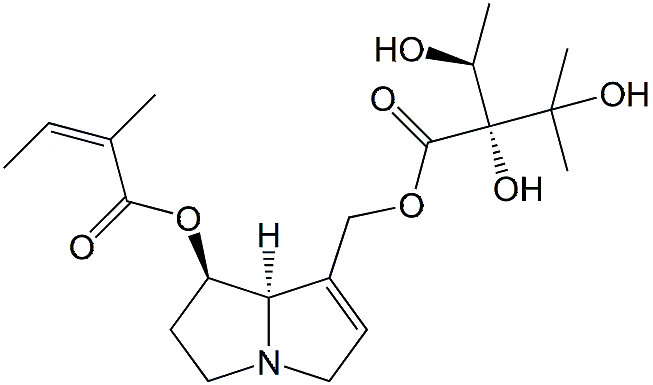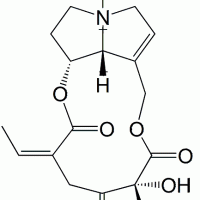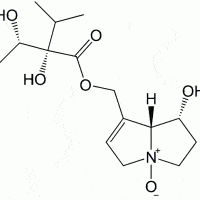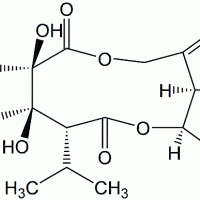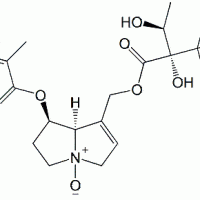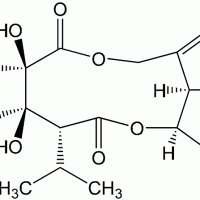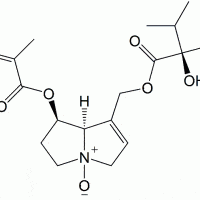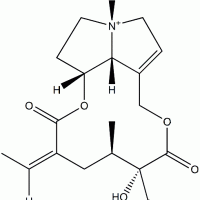- Required Weight missing.
Abstract
Echimidine (CAS 520-68-3) is one of 3 C-7 isomers that coeluted in a cluster that was previously incorrectly assumed to comprise only Echimidine. Echimidine and its isomers are pyrrolizidine alkaloids isolated from Viper’s Bugloos (Echium plantagineum).
Pyrrolizidine alkaloids (PAs) are a class of naturally occurring plant toxins that contain a pyrrolizidine structure. PAs are produced by plants as a defense mechanism against herbivores. They make up the largest class of naturally occurring alkaloids and are found in a vast number of plant species. PAs may cause adverse health effects when consumed at high levels, with indications for hepatoxicity.
Take a look at the rest of the pyrrolizidine alkaloid reference standards we have in stock.
Compound Details
| CAS | 520-68-3 |
|---|---|
| Molecular Weight | 397.5 |
| Chemical Formula | C20H31NO7 |
| IUPAC | [(7R,8R)-7-(3-methylbut-2-enoyloxy)-5,6,7,8-tetrahydro-3H-pyrrolizin-1-yl]methyl (2R)-2,3-dihydroxy-2-[(1S)-1-hydroxyethyl]-3-methylbutanoate |
| Synonyms | N/A |
| SMILES | CC(C(C(=O)OCC1=CCN2C1C(CC2)OC(=O)C=C(C)C)(C(C)(C)O)O)O |
| Purity | 95%+ |
| Storage Temperature | Below -18 degrees C |
| Storage Conditions | Dry, freezer |
Product Documents
Product Use Disclaimer
Products are sold as laboratory reference materials, to be used for diagnostic and in vivo testing. The samples are not certified for veterinary or human use.
$26.00 - $39.00 / milligram
| Range (milligram) | Price ($/milligram) |
|---|---|
| 5 - 24 milligram | $39.00 / milligram |
| 25 - 99 milligram | $35.50 / milligram |
| 100 - 249 milligram | $32.00 / milligram |
| 250 - 499 milligram | $29.00 / milligram |
| 500 - 1000 milligram | $26.00 / milligram |
Technical Support
Product information is from published literature. Due to the nature of scientific experimentation, results or specific product application may vary (e.g., selectivity, detector response). If you have questions about the product, its application, and associated analytics, please contact our technical support team.
Related products
-
View Item
Riddelliine N-oxide – CAS 75056-11-0
$28.00 - $38.00 / milligram -
View Item
Lycopsamine N-oxide
$42.00 - $56.00 / milligram -
View Item
Junceine N-oxide
$53.00 - $72.00 / milligram -
View Item
Echimidine N-oxide – CAS 41093-89-4
$34.25 - $42.50 / milligram -
View Item
Trichodesmine – CAS 548-90-3
$29.00 - $39.50 / milligram -
View Item
Echiumine N-oxide – CAS 685554-68-1
$33.00 - $49.00 / milligram -
View Item
Retrorsine N-oxide – CAS 15503-86-3
PRICE ON REQUEST


